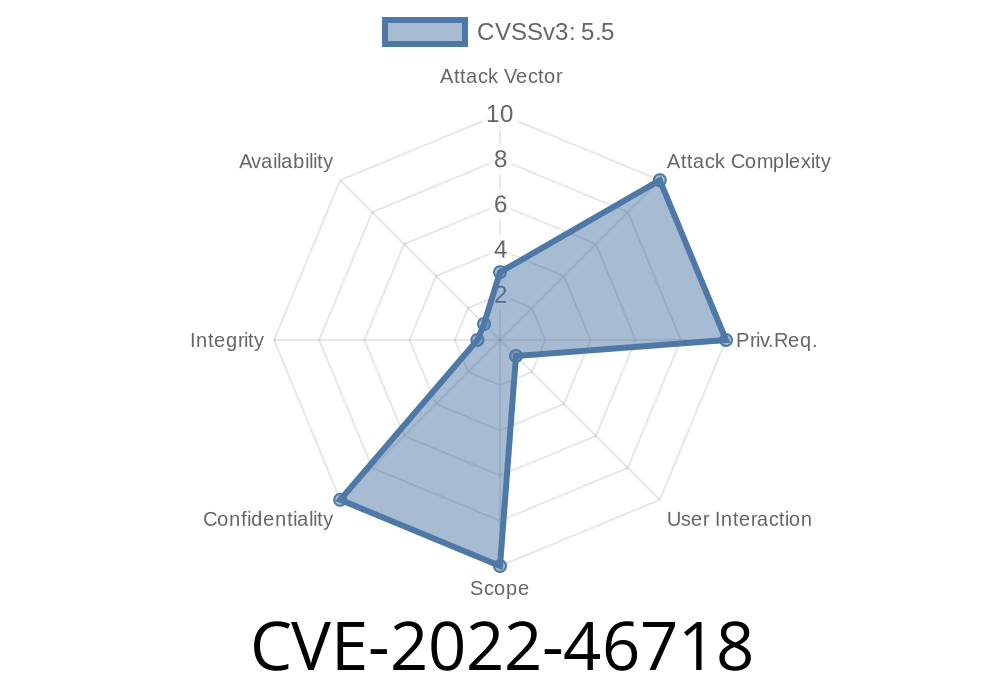In December 2022, Apple quietly patched a critical vulnerability, CVE-2022-46718, that allowed apps to sneakily access your device’s sensitive location data. Even if you thought your privacy settings were set tight, this bug made it easier for a malicious app to read your location without proper permission. Let’s break down what happened, why it mattered, and how you can protect yourself.
What Was CVE-2022-46718?
CVE-2022-46718 is a logic issue found in Apple’s operating systems—including iOS, iPadOS, and macOS. This bug affected how the system enforced privacy rules around location data. Specifically, a malicious app could exploit this flaw to learn your current location, even if you disabled location sharing.
macOS Monterey 12.6.2
Here’s the official Apple Security Update referencing this issue.
Why Was This Dangerous?
Location data is some of the most personal information on your phone or computer. It tells apps exactly where you are and, if abused, can lead to:
Identity theft or social engineering attacks
Apple makes privacy a selling point, so vulnerabilities like this are a big deal.
The Technical Problem (in Simple English)
The root issue was a logic bug in the way Apple was restricting location access. Logic issues aren’t about code crashing—they happen when the code doesn’t have enough checks or does something in the wrong order.
Let’s imagine a simplified code scenario to show how a bug might look
// Pseudo-code for handling location access
func requestLocationAccess(forApp app: App) -> Bool {
if app.hasLocationPermission {
// Allow access
return true
}
// Oops! Logic bug: fallback to system default (which may grant access)
return systemDefaultAllowsAccess
}
Because of insufficient restrictions, an app could end up getting access to your location even if you never granted permission.
The real code in Apple’s system is much more complex, but Apple’s fix was to “improve restrictions”—meaning, they tightened up these checks so that only apps you allowed can see your location.
Proof of Concept: How It Might Have Worked
No public exploit code exists (and Apple doesn’t publish one), but here’s a simplified version in Swift showing the kind of mistake:
import CoreLocation
class SneakyApp: NSObject, CLLocationManagerDelegate {
let locationManager = CLLocationManager()
func tryReadLocation() {
// Should only work if permission is granted
locationManager.delegate = self
locationManager.requestLocation()
// Logic issue: Apple’s bug let this work even if the user said "Never"
}
func locationManager(_ manager: CLLocationManager, didUpdateLocations locations: [CLLocation]) {
print("User's location: \(locations.first!)")
}
}
After the system update, if you block location access, this code will NOT return real locations.
How to Stay Safe
1. Update Now—Don’t Wait!
If you’re using an older iPhone, iPad, or Mac, check for updates
- Go to *Settings* > *General* > *Software Update* (iOS/iPadOS)
*Apple Menu* > *System Preferences* > *Software Update* (macOS)
2. Check Your Location Permissions
- iOS/iPadOS: *Settings* > *Privacy* > *Location Services*
- macOS: *Apple Menu* > *System Preferences* > *Security & Privacy* > *Privacy* tab > *Location Services*
Review which apps have access and revoke any you don’t trust.
3. Stay Informed
Keep an eye on Apple’s Security Updates for new patches.
References and Further Reading
- Apple CVE-2022-46718 Security Advisory (iOS 15.7.2)
- Apple Security Updates List
- NVD Writeup on CVE-2022-46718
Final Words
If you haven’t updated your Apple device since December 2022, now’s the time. Logic bugs like CVE-2022-46718 are dangerous because they slip past your defenses, letting apps break the rules you chose. Stay safe, keep your software up to date, and always double-check which apps can see your info.
Remember: Privacy isn’t a setting you turn on once—it’s something you protect every day.
*This post was made exclusively for you, breaking down a complicated security story in plain language. Stay secure out there!*
Timeline
Published on: 06/23/2023 18:15:00 UTC
Last modified on: 06/27/2023 10:51:00 UTC
